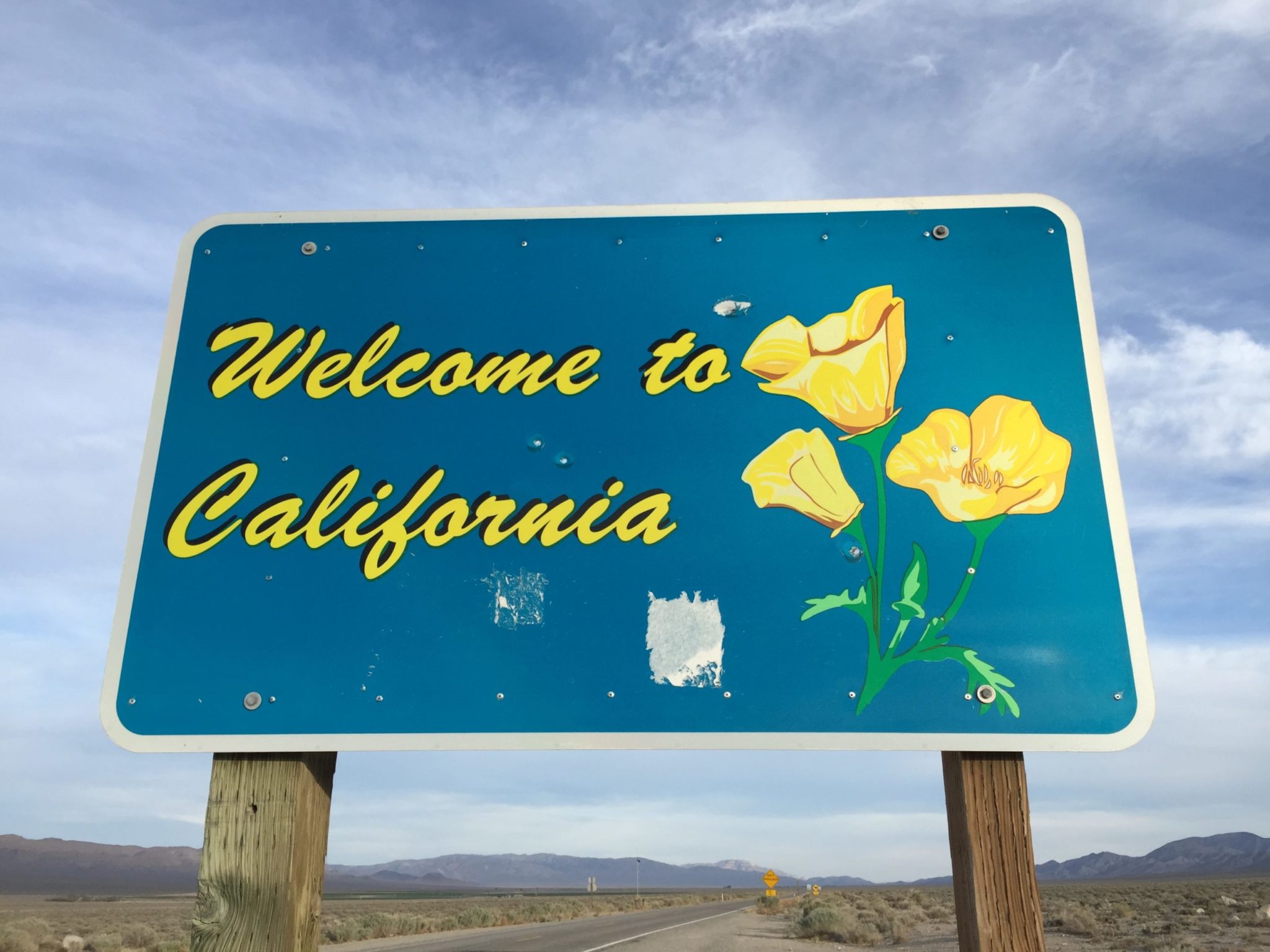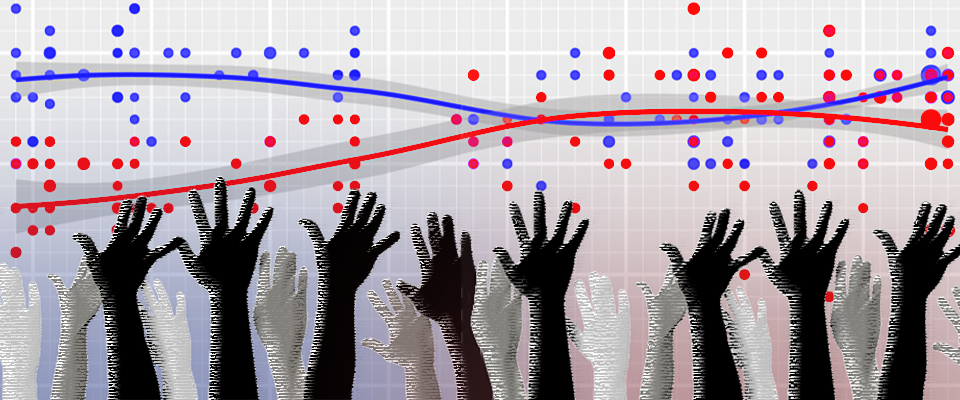Some political analysts are showing laudable restraint by deeming the current election year anomalous, or unprecedented, but many are just saying the hell with it, and calling it as they see it—crazy. Or deeply, savagely weird, as Hunter S. Thompson might have characterized it. (And if ever there were an election cycle that needed the late gonzo journalist’s deft touch, it’s the current one.) That weirdness is all-pervading, of course, but its clearest manifestation is the insurgent candidacies of Donald Trump and Bernie Sanders.
“It’s only by an incredible stretch of the imagination that these two people can be considered members of the parties they are in large part leading,” says Jack Citrin, a Cal political science professor and the director of the university’s Institute of Governmental Studies. “Donald Trump hardly represents traditional Republican values. And Bernie Sanders is an Independent, not a registered Democrat. [There is no required party registration his home state of Vermont.] He twice refused the Democratic nomination for Senator in Vermont.”
This election year also is noteworthy for something else: California may actually make a difference in the primaries, particularly in the Republican race. This seldom happens because the Golden State’s primary is in June. Typically, the leading candidates have their nominations in the bag by the time Californians cast their ballots. Indeed, that remains true this year for the Democrats. No matter how well Sanders does leading up to the Democratic convention in Philadelphia in July, it is unlikely he will overcome Hillary Clinton’s delegate lead. But the delegate race between Republican candidates Donald Trump and Ted Cruz is tightening to the point that the issue may not be decided by the time the Republican convention in Cleveland (also in July) rolls around.
California is less likely to influence the Democratic race because the Democratic Party has a “safety valve” that the Republicans lack, says Citrin: an abundance of superdelegates, party leaders and other bigwigs who, unlike regular delegates, are not committed to a specific candidate, but can vote as conscience or whim dictates. Generally, though, they go with the most orthodox option—the candidate most firmly rooted in the party itself, and the one down-ballot Democratic candidates are most comfortable appearing with on the ballot. In the current case, that means Hillary, not Bernie.
The Republican Party has some superdelegates, but they are far fewer in number and exercise less autonomy than their Democratic counterparts. So at this juncture, the Republicans are far more open—or susceptible, depending on interpretation—to outlier candidates like Trump.
Currently, Trump has 743 delegates, Cruz has 532 and laggard Ohio Governor John Kasich has 143. California harbors a cache of 341 Republican delegates—a huge chunk, considering only 867 remain available. If Trump is able to come out of the California primary with 1,237 delegates in total, he’ll take the nomination at the Republican convention on the first ballot. If not—and many pundits think it’s unlikely he will—things are likely to get really wild, with no safe bet on how many ballots it takes to pick a nominee, much less who that nominee will be.
Presaging the rancor likely to come, a new Field Poll shows that Trump leads in the statewide popular California vote, with likely voters now giving him 39 percent to 32 percent for Cruz, with John Kasich in a distant third. But Cruz dominates in several California congressional districts, particularly in Los Angeles, and such pockets of regional strength could put a big dent in Trump’s Golden State delegate collection.
“California Republican delegates are awarded winner-take-all by Congressional district, not by the statewide vote,” states Katie Merrill, who’s on the advisory board of the Institute of Governmental Studies and is founder and president of the Merrill Strategy Group, a Democratic political consulting firm. “If Cruz has support concentrated in certain geographic areas, that means he could win those congressional districts and all the delegates from those districts. If The Donald hasn’t gotten to the magic number of 1,237 delegates before he gets here, California will not put him over the top.” [Ten at-large California delegates will be awarded as a small bonus to the top vote-getter statewide.]
In other words, Trump may be denied the nomination even if he wins California’s popular vote. And given his furious responses to the Cruz campaign out-organizing with its delegate-snatching end-runs (most recently in Colorado) and the Republican Party establishment’s ongoing attempts to derail him, it’s at least even money he will not go gentle into that good Cleveland night if he’s denied the nomination.
The strategic voting trope as a kind of idée fixe “lodged in the brains of hyper-political wonks, the kind who are always looking at the meaning and nuances of all possible angles, and how to work them.”
And then there’s the issue of so-called strategic voting—Democrats or Republicans crossing party lines in the primaries to vote against, rather than for, a specific candidate. Such a ploy could certainly stop Trump in California, assuming enough Democrats, decline-to-state voters or those with other third-party affiliations re-registered as Republicans by May 23. (California voters who have no registered party preference can cast ballots in the presidential primary of any one of the three parties that have officially agreed to allow it: the Democratic, American Independent, and Libertarian parties. The Republican Party, however, will only permit registered Republicans to vote in its state primary.) And if any credence is given to some recent press dispatches, that seems a distinct possibility.
Until you talk to folks who track such things, that is.
“In order for strategic voting to have an impact, you’d have to see mobilization, in this case of the California’s Democratic Party base,” says Laura Stoker, UC Berkeley associate professor of political science. “And we’re not seeing that. It’d be difficult, plus it’s unclear how much impact it’d have. If you made a significant effort, for example, you might be able to mobilize people in, say, San Francisco, where there are a lot of highly motivated Democrats and not many Republicans. But in the end, you’d only wind up with three delegates [from the 12th Congressional District]. Furthermore, if you’re a Democrat, which candidate do you really want your candidate to face? Trump? Cruz? It’s not clear there’s a consensus.”
Paul Mitchell, a pollster and voter data analyst who is following California’s voter registration stats, sees no sign of a massive strategic voting plot by Democrats.
“[There have been] over 600,000 new registrants and re-registrants since January 1,” states Mitchell, “but for a sense of scale, only 4,727 of those were Democrats re-registering as Republicans. The data shows that the rate of changing parties is low, and it always has been.”
Mitchell characterizes the strategic voting trope as a kind of idée fixe “lodged in the brains of hyper-political wonks, the kind who are always looking at the meaning and nuances of all possible angles, and how to work them.”
Mitchell compares the concept “to a Giants fan who decides to go to a game wearing a Dodger uniform and rooting for the Dodgers, thinking that will somehow motivate the Giants to win.” But that’s not how baseball—or voting—works for most people, he says.
“If you’re a Giants fan, you’re going to wear Giants regalia and get excited about the Giants and scream and yell for them. And if you’re a progressive Democrat, it’s very unlikely you’re going to throw those values out on a long shot that you can spike a particular Republican candidate. You’re going to be backing your candidate. You’re not thinking about game theory.”
Also, added Mitchell, echoing Stoker, “for strategic voting to actually work, everyone involved has to agree on the same strategy. When one person is strategically voting for this candidate and another is strategically voting for that one, they cancel each other out.”
“I really think we’re looking at the dissolution of the Republican Party. The fault lines are simply so deep. It’s analogous to the collapse of the Whigs.”
Regardless of the role California plays in the Republican primary, the forces now stressing the party seem destined to erupt in spectacular fashion.
“I really think we’re looking at the dissolution of the Republican Party,” says Merrill. “The fault lines are simply so deep. It’s analogous to the collapse of the Whigs [in the 1850s] that led to the formation of the Republican Party. Maybe in two to four years, we’ll see some other party or parties forming.”
Citrin doesn’t think things look quite so apocalyptic for the Republicans, though he anticipates they will wander about in the wilderness for a while.
“The Republicans have brought this crisis largely on themselves,” Citrin observes. “For electoral purposes, they embraced groups that were not part of their core coalition while neglecting other constituencies, like working-class whites. There has been economic stagnation for white workers while the wealthy are perceived as getting away with stuff. On top of that, you add a tinge of racism. It’s heady stuff, what Richard Hofstadter termed ‘cultural dispossession.’ And Trump has been able to seize on it. It’s entirely possible that Trump will be nominated, and if he is, many Republicans won’t vote for him. But I doubt it will break up the party. Things looked very bad for them after Goldwater, another insurgent candidate, was defeated in 1964. But they regrouped, and they ultimately were able to get Reagan elected.”
But Citrin does think Republican bosses will seek some way to prevent populist candidates like Trump from gaining momentum in future elections.
“They’re going to be looking very hard at enlarging the pool of superdelegates,” he says. “It’s a safety valve that works for the Democrats, and that’s not being lost on Republican Party leaders.”





















